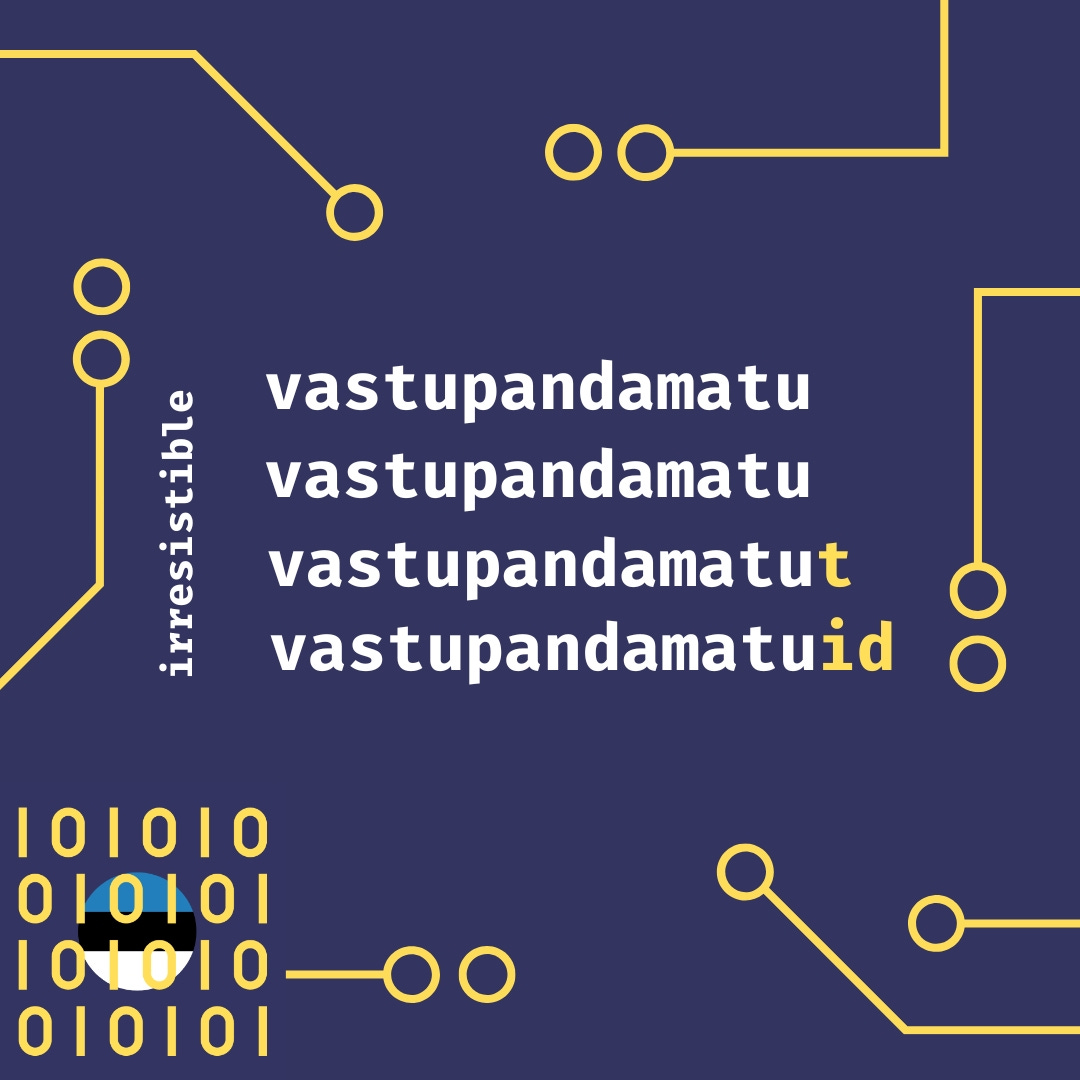Vocab: vastupandamatu
irresistible
irresistible; something that’s hard to resist, with a powerful impact (about a desire, temptation, etc.); exceptionally charming or alluring (about a person)
Building blocks
vastu- - "against" or "opposing"
-pandama- - "to resist" or "to stand against" (derived from "panna," which means "to put" or "place" but, in this structure, suggests resistance)
-tu - an adjective forming ending, indicates a lack of this quality, meaning "without the ability to resist"
Thus, "vastupandamatu" translates directly to something like "irresistible" or "unable to be resisted"
How to use it:
Here are a few ways the word “vastupandamatu” can be used ⬇️
Describing a Strong Temptation or Desire:
See šokolaadikook on lihtsalt vastupandamatu!
Translation: This chocolate cake is simply irresistible!
Describing a Person with Irresistible Charm or Appeal:
Ta naeratus oli vastupandamatu ja võitis kõik südamed.
Translation: His/her smile was irresistible and won everyone’s hearts.
Examples
Värskelt küpsetatud leiva lõhn oli vastupandamatu
Literally: “Freshly baked bread smell was irresistible”
Idiomatically: “The smell of freshly baked bread was irresistible”
Värskelt - Adverb - Indeclinable, "Freshly"
küpsetatud - Participle - Past Participle, "baked"
leiva - Noun - Genitive Sg, "bread"
lõhn - Noun - Nominative Sg, "smell"
oli - Verb - 3P Past Sg, "was"
vastupandamatu - Adjective - Nominative Sg, "irresistible"

